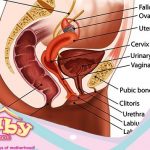Good nutrition is the building blocks of a healthy body. You are what you eat. Nutrition for conception involves eating healthy and well-balanced meals and helps your body to work to the best of its ability. You must consume the recommended amounts of carbohydrates, fibre, protein, essential fats and water daily. It is recommended that you should give yourself at least three months of healthy nutrition before trying to conceive. Healthy nutrition is linked to fertility for both men and women. Therefore, both partners must eat well-balanced meals.
FOODS TO AVOID
- Caffeine – Research is showing that caffeine can lower your fertility by approximately 27%. Caffeine also has a negative effect on your overall nutrition because it restricts the body’s ability to absorb iron and calcium.
- Refined Sugars and highly processed foods – You should avoid eating simple carbohydrates that include sugar, white kinds of pasta, white flour, other refined grains and sweets. These foods contribute to obesity and can contain pesticides, artificial hormones, and preservatives. These foods negatively affect your fertility by decreasing your hormonal health.
- Bad Fats – Research increasingly points to links with bad fats like the trans-fats (partially hydrogenated fats) found in processed foods and the saturated fats in animal meat with lower fertility rates. Therefore, trans-fats and saturated fats should be eliminated from your diet and replaced with good fats like monounsaturated fat found in olive oil, sunflower or coconut oil.
- Soy Products – Soy-based products have been shown to decrease sperm count in men in several recent studies. It appears that an isoflavone compound called Genistein, found in all soy-containing products, slows or even destroys human sperm. Men should avoid products like soy milk other soybean-based products at least while you are trying to conceive. Studies have shown that even small amounts of the compound Genistein in the female tract could destroy sperm. Therefore, even women should avoid soy products—at least during ovulation and limit their amounts during other times of the month.
FERTILITY DIET BASICS
- Water: Water is important for organ function by serving as the mechanism for helping deliver the nutrients to your body. It also influences your hormonal balance. Furthermore, water cleanses and helps carry toxins out of your body, allowing it to function at optimal levels, and helps prevent those toxins from building up and negatively impacting your fertility.
- Complex Carbohydrates: Eating complex carbohydrates like vegetables, whole grains, brown rice, and whole-grain cereals and pasta are some of the best ways to get the nutrients that positively influence your fertility. The complex carbohydrates of vegetables, whole grains and fruits also ensure that you have fibre in your diet. Along with water, fibre works to help remove toxins from your system keeping your organs and body in healthy working condition.
- Protein: Protein influences your fertility by providing the nutrients that contribute towards hormone production. Some protein should be consumed during every meal. However, ensure that you take the right proteins. Diets that are high in red meat consumption are tied to health concerns that can impact your fertility such as endometriosis. The best proteins come from eggs, beans, nuts, seeds, oily fish and white meat. If you must eat red meat, choose lean cuts and avoid processed meats like bacon and sausage. Also, make sure you avoid fish that are high in mercury.
- Good Fats: There are different types of fats and they are important to your fertility. The fatty acids found in oily fish, nuts and seeds affect both fertility and the healthy development of your growing baby during pregnancy. Essential fatty acids can be obtained in oily fish like Nile perch and salmon, as well as nuts and seeds. You can also complement your food intake with Omega 3 fish oil supplements.
- Whole Milk: Recent studies point to a link between drinking whole milk and increased fertility rates in women. It appears the natural hormones found in whole milk fat seem to give a boost to fertility in women. If the milk fat is removed, the natural hormones left in non-fat milk seem to decrease fertility in women by increasing ovulation failure rates. Therefore, it is recommended that women switch to limited amounts of whole milk while trying to conceive. If you are not a milk drinker, try whole-milk yoghurt for a snack.
Essential Nutrients For The Woman
Some key nutrients directly affect fertility in women:
- Zinc: This directly impacts fertility in women. There is plenty of research tying deficiencies in zinc with negative effects on fertility for both men and women. Getting zinc naturally can be done by eating vegetables, eggs, whole grains, nuts, sunflower seeds, watermelon and dried fruit. You can also find zinc in onions, beetroot, peas and beans.
- Vitamin B6: This affects your fertility by contributing to the production of female sex hormones and by regulating both oestrogen and progesterone. B6 increases your chances of conception and decreases your chances of miscarriage. Getting B6 naturally can be done so by eating eggs, salmon, peanuts, bananas and sunflower seeds. Prenatal vitamins will also contain B6 as part of the supplement and are a great way to ensure that you have this essential fertility and baby wellness nutrient.
- Vitamin C is a fertility nutrient because it helps in triggering ovulation. It also helps in sperm count for men, so it plays a key role for both men and women. Vitamin C can be consumed through vegetables and fruits.
- Vitamin E is another fertility nutrient for both men and women. It enhances hormone function in women and affects sperm function in men. Vitamin E can be obtained naturally through oily fish, green leafy vegetables, broccoli, nuts, egg yolk, whole grains and unrefined oils.
- Folic Acid: This Promotes normal digestion. It is essential for the development of red blood cells and is essential for the development of a healthy embryo. Sources include yeast, dark green leafy vegetables, legumes, and some fruits like avocado
Essential Nutrients For The Man
Here are some key nutrients that he must take to ensure healthy sperm. All of these nutrients have been tied to healthy sperm production and function. Men should make sure that they are getting their recommended daily doses.
- Zinc is an important nutrient that contributes to the production of semen and testosterone in men. It impacts both the quality and production of sperm.
- Vitamin C helps prevent sperm from clumping together and improves sperm count.
- Vitamin E also increases sperm quality—especially when combined with selenium.
- Omega 3s enhance sperm quality and viability.














